7 Jun 1999 – The day in history when India announced the ‘War of Kargil’; the world’s toughest battle and some lesser-known facts
| 07-Jun-2021 |
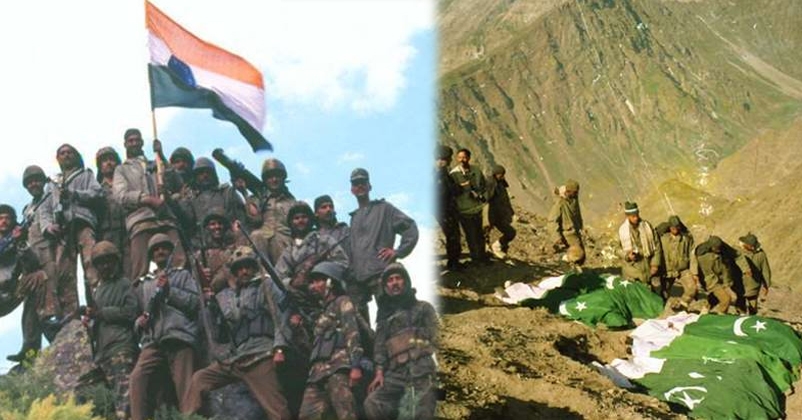
On June 7, 1999, when Prime Minister of India (then) Atal Bihari Vajpayee addressed the nation, he officially announced the infiltration of the Pakistan Army into Indian territory. Describing it as a grave situation, the then PM said, “No government can tolerate such an incursion - our government certainly will not. It is our duty to rid our sacred motherland of every single intruder. Our armed forces have launched a major operation to drive them back”, he added. The Prime Minister exuded confidence in the army and said, "the armed forces shall accomplish this task and ensure that no one dares to indulge in this kind of misadventure in future.” This was the official declaration of the war by the Government of India, the conflict that was started by the Pakistan Army. The Kargil war, also the biggest military action in Southern Asia since 1971 had ended with the embarrassing defeat of Pakistan.
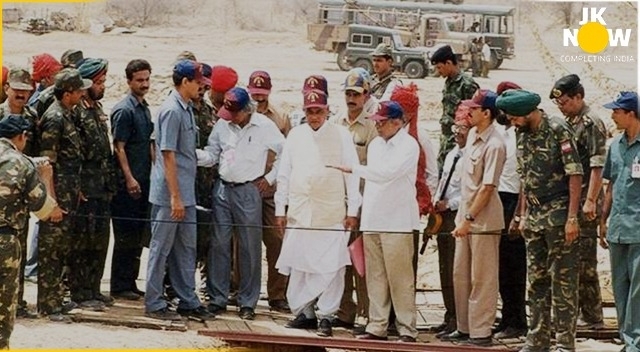
The Kargil war of 1999, is also considered the world’s toughest battle which Indian won. It was during the war itself that Pakistan was not only completely isolated, but it also lost its credibility at the international level. (The News, 25 July, 1999) And India's glory found new heights. In fact, due to its remarkable military management, India came to be considered as a responsible and capable power of self-control in the world. (Proceedings and Debates of the U.S. Congress, 29 July, 1999)
With Kargil War won, how Indian army established its power and true valour
After the Kargil war where India stood victorious, it also embarked on another big achievement; in the previous wars with Pakistan or China, whatever India gained or won, our then governments lost it under the pretext of treaties and pressure. Whereas in the Kargil war, the Vajpayee government did not lose an inch of land and rather victoriously pushed Pakistan out of the border of India. As history has it, in 1947, one-third of Jammu and Kashmir were forcibly taken under Pakistani occupation. In the year 1962, our land of 38,000 square kilometers was grabbed by China. In 1971, around 90,000 enemy soldiers were returned to Pakistan without any conditions and in writing.
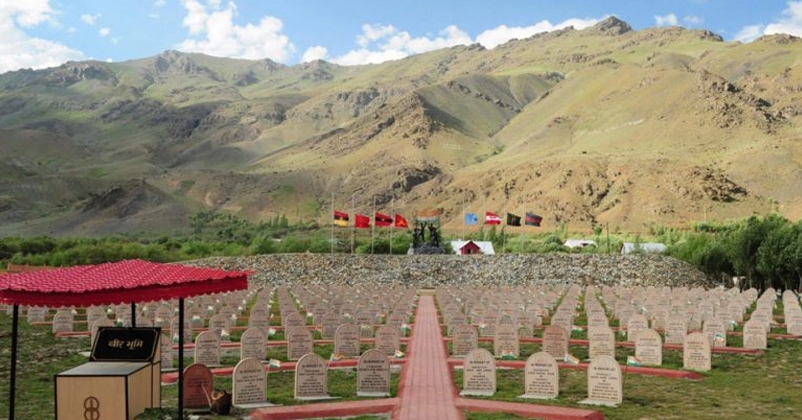
Clearly, India not only tasted victory in Kargil but it also did not forget its true values as a nation. Our armed forces set an example of great valour, and humanity, and adherence as well to the rules of war. Pakistan refused to accept the mortal remains of Pakistan Army soldiers killed in the war, most of whom belonged to the enemy’s 12th Northern Light Infantry and 165 Mortar Regiment. According to the New York Times (July 17, 1999), the Indian Army wrapped the Pakistani soldiers’ bodies in their national flag and buried them on Indian soil. The last rites of all the dead bodies were also done in an Islamic manner.
India’s diplomatic edge and Pakistan’s desperation to end the war
Noticeably, with the successful military action, the Indian government also got a diplomatic edge. Pakistan's Foreign Minister (then) Sartaj Aziz arrived in New Delhi on 12 June. He made three-point proposals, (1) ceasefire, (2) a joint working group to be set up to review and determine the Line of Control and (3) a similar visit of the Indian minister to Pakistan in the coming week. New Delhi rejected this offer outright. India's Foreign Minister (then) Jaswant Singh said that India will not compromise under any circumstances until the Pakistan Army is completely withdrawn from Indian territory.
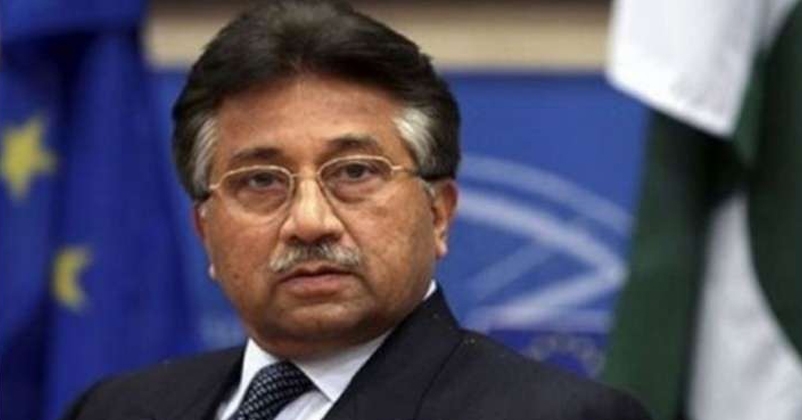
After Sartaj's unsuccessful visit to India, the Pakistan government began looking for ways to end the war. According to an interview of the then Pakistani PM Nawaz Sharif published in India Today on July 26, 2004, he was desperately seeking an end to the war. He also appealed to US President Bill Clinton for intervention, they first spoke over the phone, however, it did not yield any solution for Pakistan. This made Nawaz so discouraged that on July 3, i.e in the middle of the war, he went to Washington. President Clinton, in his book 'My Life', writes of this visit, "I (Bill Clinton) insisted to him (Nawaz Sharif) that he come to America with two things in mind, the first being to help his troops along the Line of Control. And second, I am not ready to interfere in the Kashmir issue."
President Clinton tried to persuade Prime Minister Vajpayee to come to the US at the same time as Nawaz Sharif was arriving there. However, the then Indian Prime Minister vehemently refused. A joint statement was drafted after the meeting of the heads of state of the US and Pakistan. "Clinton called Vajpayee to see the joint statement before it was signed," writes Bruce Riedel, special assistant to the US president and senior director for North East and South Asia. It was a picture of India's growing diplomatic credibility. For the first time after independence, America strongly supported India by not taking Pakistan's side. Washington's inclination towards India in this way was an important milestone in Indo-US relations.
Meanwhile, Prime Minister Vajpayee chaired a meeting with the then Security Advisor Brijesh Mishra and Chief of Army Staff V.P Malik on 8 July. Malik writes in his book 'Kargil, from Surprise to Victory', "The Prime Minister asked me how long would it take for the rest of the Pakistani army to escape? I replied that it would take two to three weeks to clear the infiltration." After this, several rounds of long talks took place between the chiefs of the three armies. Eventually the Indian Army completely expelled Pakistan from the Indian border.
July 26 is celebrated as Kargil Vijay Diwas in honor of the brave soldiers of Kargil.
“Kargil was the biggest mistake in the history of Pakistan”: Former Pakistani PM Benazir Bhutto
The defeat of Pakistan led to the internal criticism of both the army and the government in their country. Pervez Musharraf, the architect of the Kargil war, was the Chief of the Army Staff at that time. He published his book. In the Line of Fire: A Memoir in September 2006. In this book, he himself has admitted that the 'achievements' of the Pakistan Army is its failures.
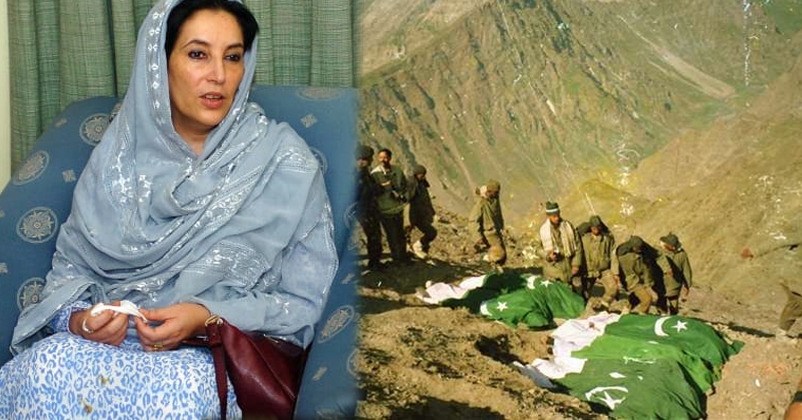
Former Prime Minister of Pakistan Benazir Bhutto told 'The News' on July 22, 1999, "Kargil was the biggest mistake in the history of Pakistan. The entire operation cost Pakistan dearly. This has instilled in Indians a feeling that Pakistan has betrayed them, and the Pakistan leadership has been betrayed during the peace process in the region." Former Pakistan Air Force Chief, Air Marshal Noor Khan also told The News, “There is no argument to justify this operation. Pakistan has been making such mistakes since 1947 and we have not learned any lesson from our mistakes, which our rulers have been committing”.